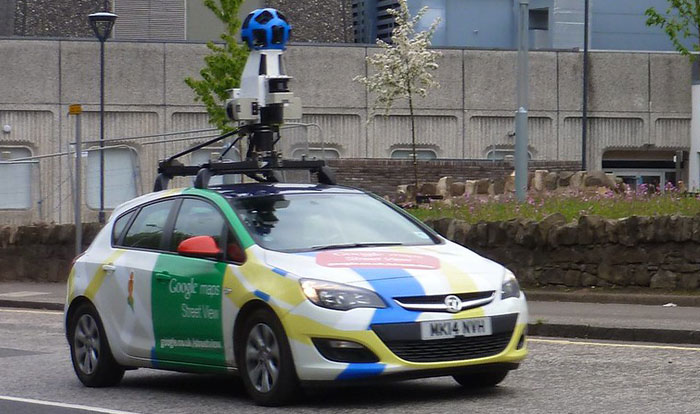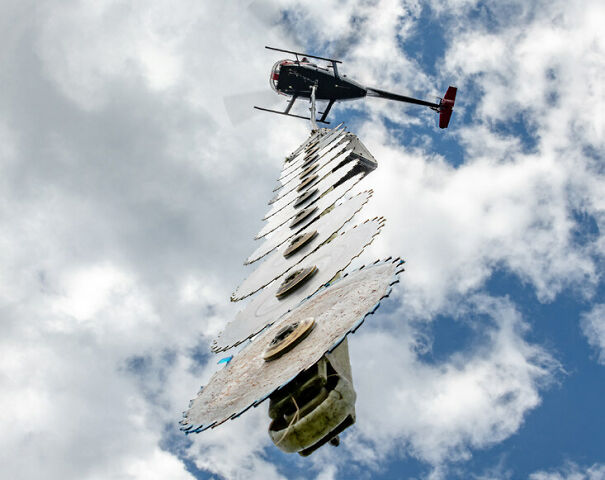Imagine a slice of soft, freshly baked bread heated up until it’s dry. Now spread something on it until it tastes edible again. Voila! Toast!
No matter how much of a revolutionary you believe you are, convincing others that you have a great idea isn’t the easiest thing to do. Because sometimes, ideas sound a lot worse on paper than in practice. Redditors have recently been discussing businesses and ideas that must have sounded terrible yet managed to succeed against all odds. So enjoy scrolling through their thoughts, and be sure to upvote the ideas you would have been skeptical of too!
This post may include affiliate links.
 Once upon a time I had a headache. My then-boyfriend said to take a shower by candlelight.
My first thought was, "Showering in near darkness is a stupid idea" followed immediately by "I want to try it."
Damn if it didn't work. I went ahead and married him to retain access to his good ideas and his pancakes.
Once upon a time I had a headache. My then-boyfriend said to take a shower by candlelight.
My first thought was, "Showering in near darkness is a stupid idea" followed immediately by "I want to try it."
Damn if it didn't work. I went ahead and married him to retain access to his good ideas and his pancakes.
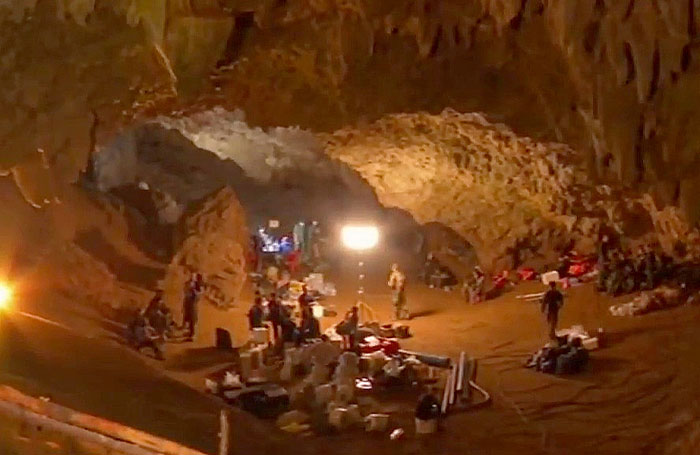 The way they extracted those kids from the cave in Thailand. The diver and anesthesiologist (first off, how f*****g lucky to find somebody with that overlap in skills) who was consulted and joined the effort said it was a terrible idea. It was only when presented with the other options that he realized this terrible idea was truly their best option.
They rescued all the kids and their coach successfully.
The way they extracted those kids from the cave in Thailand. The diver and anesthesiologist (first off, how f*****g lucky to find somebody with that overlap in skills) who was consulted and joined the effort said it was a terrible idea. It was only when presented with the other options that he realized this terrible idea was truly their best option.
They rescued all the kids and their coach successfully.
 When they were working on the movie idiocracy, they asked the costume designer to find goofy yet futuristic looking shoes to have people wear. They found a small company and decided that their shoes looked so stupid that Nobody in their right mind would ever wear them.
After some time they were asked what would happen if the shoe brand suddently took off, and they answered that theres no way people would seriously buy these.
The brand was crocs
When they were working on the movie idiocracy, they asked the costume designer to find goofy yet futuristic looking shoes to have people wear. They found a small company and decided that their shoes looked so stupid that Nobody in their right mind would ever wear them.
After some time they were asked what would happen if the shoe brand suddently took off, and they answered that theres no way people would seriously buy these.
The brand was crocs
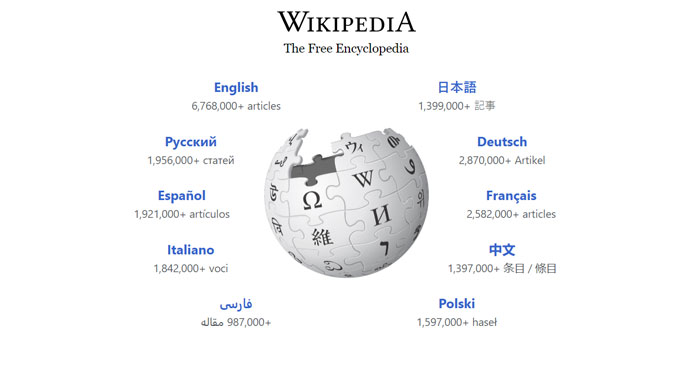 As someone who spent a lot of time around 2005 trying to describe it to some very skeptical people, I would definitely say Wikipedia.
As someone who spent a lot of time around 2005 trying to describe it to some very skeptical people, I would definitely say Wikipedia.
Even early on, when people were criticizing its crowd-sourcing nature, studies showed that it had about the same level of accuracy as a traditional encyclopedia.
 Selling bottled water in places where tap water is both free and better regulated used to be a joke.
Selling bottled water in places where tap water is both free and better regulated used to be a joke.
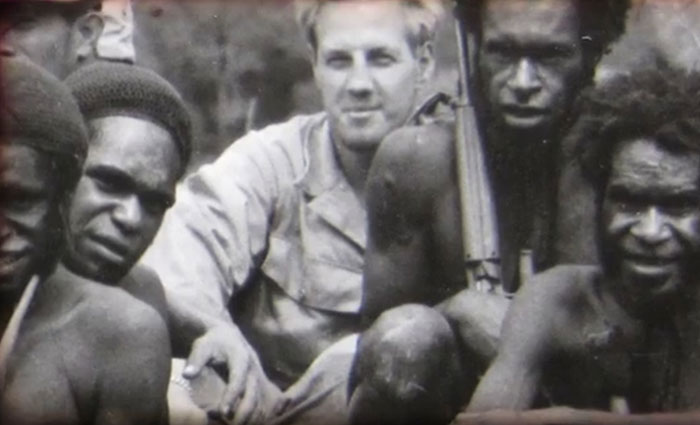 A plane has crashed in the jungles of New Guinea. Three survivors have found a village and managed to get communication. There's no way to get an airplane room to land and take off and helicopters can't make it into the valley. I know! We'll airdrop medical personnel, supplies for a glider, assemble it, and slingshot it into the air! Then, we'll catch it with a tow-plane. It worked.
A plane has crashed in the jungles of New Guinea. Three survivors have found a village and managed to get communication. There's no way to get an airplane room to land and take off and helicopters can't make it into the valley. I know! We'll airdrop medical personnel, supplies for a glider, assemble it, and slingshot it into the air! Then, we'll catch it with a tow-plane. It worked.
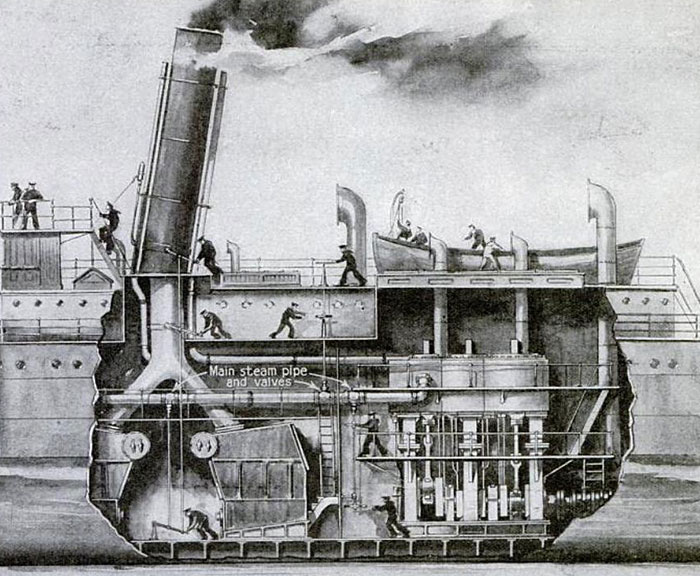 "What, Sir? Would you make a ship sail against the wind and currents by lighting a bonfire under her deck? I pray you excuse me, I have no time to listen to such nonsense.”
- Napoleon Bonaparte, regarding the steam engine
"What, Sir? Would you make a ship sail against the wind and currents by lighting a bonfire under her deck? I pray you excuse me, I have no time to listen to such nonsense.”
- Napoleon Bonaparte, regarding the steam engine
The quote was used in Civilization IV, but in reality it was not about ships, or even steam engines. The real quote is about an early submarine (by some standards, the first working submarine ever built). Fulton presented plans for his invention, called Nautilus, to Napoleon. Napoleon, who was not a fool and was actually very progressive when it came to technology, had his interest piqued, and formed a cabinet scientific committee to evaluate the invention. Unfortunately, despite initial successes in front of the committee, Napoleon decided to visit Fulton's invention himself at a time when it had piled up several critical issues and the inventor was in the process of dismantling it and starting over. Napoleon did not appreciate Fulton wasting his time, and considered Fulton a swindler, the invention a way to scam funds out of him, so he shut it down. The quote is most likely apocryphal, while referring to real events, and was likely made up by a Fulton's biographer in the 1920s.
 Dropping a whole bunch of cats by parachute over Borneo to stop the spread of plague.
Dropping a whole bunch of cats by parachute over Borneo to stop the spread of plague.
In the 1950s, the World Health Organization (WHO), to curb a malaria outbreak among Borneo’s Dayak people, sprayed their thatch-roofed huts with Dichlorodiphenyltrichloroethane (DDT). This killed not only the malaria-bearing mosquitoes but also the parasitic wasp that controlled thatch-eating caterpillars. Soon roofs came tumbling down. Then geckos that ate the poisoned mosquitoes, while not dying outright, became lethargic and easy prey for the cat population. The cats, however, died outright allowing the rat population they controlled to explode. The Dayak’s had now exchanged a potential bout of malaria for a potential bout of plague. Rather than add to the levels of unintended consequences by poisoning the rats, the WHO decided to replenish the cat population with a donation of fourteen thousand cats. By air. With parachutes.
 Toast.
"Hey let's take something we already finished baking and heat it up again." The person who first came up with it must have sounded crazy.
Toast.
"Hey let's take something we already finished baking and heat it up again." The person who first came up with it must have sounded crazy.
No no wait you don't get it. We're not just heating it up again we're gonna burn it... but just a LITTLE BIT.
 "Nobody's going to play your silly little java game with outdated graphics about digging up blocks"
"Nobody's going to play your silly little java game with outdated graphics about digging up blocks"
In 2006 I thought of having a delivery service for all restaurants, but figured that to pay the driver for their time + gas + wear and tear, you'd have to charge the customer so much it would never work. Didn't realize drivers are willing to work for pennies and customers are willing to spend $30 for $7 worth of food. My bad.
 Rumor has it that the founder of FedEx received a C in college on a paper describing his proposed business. According to the rumor, the professor thought no one would use the service when the Post Office already provided that service at lower cost.
Rumor has it that the founder of FedEx received a C in college on a paper describing his proposed business. According to the rumor, the professor thought no one would use the service when the Post Office already provided that service at lower cost.
 Have you ever heard of the "Pet Rock" phenomenon? It sounded absurd to sell rocks as pets. On paper it was a headache, but in reality in the 70s people went crazy about it. Sometimes the craziest ideas spark the most!”
Have you ever heard of the "Pet Rock" phenomenon? It sounded absurd to sell rocks as pets. On paper it was a headache, but in reality in the 70s people went crazy about it. Sometimes the craziest ideas spark the most!”
The success mostly came from the novelty of the idea, the humorous booklet attached and them being a cheap gag gift. At the time gifting useless but silly stuff was not common, so the inventor tapped early into a growing trend. It was possibly a stupid product, but the intuition behind was genius and the execution was flawless. By the way, it was not "in the 70s", it was limited to a very short time around the holiday season of 1975.
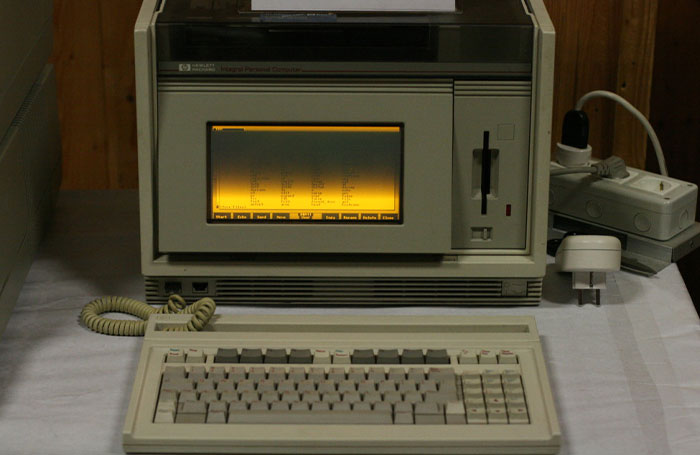 Personal Computers. In the 1970s, the idea of having a personal computer at home was met with skepticism. Many believed that computers were massive machines meant for businesses and institutions.
Personal Computers. In the 1970s, the idea of having a personal computer at home was met with skepticism. Many believed that computers were massive machines meant for businesses and institutions.
 The fake inflatable tanks in WW2.
The fake inflatable tanks in WW2.
For those who don't know, inflatable tanks were used as decoys for enemy aerial surveillance. The most famous example was at Dover in 1944, where inflatable tanks were planted to deceive Luftwaffe surveillance that there would be an attempted landing at Pas de Calais instead of Normandy. Other tactics used were appointing the most famous American general to the 'base' while appointing someone else to work on the real invasion, and dropping dummy paratroopers at Pas de Calais
Ok ok ok ok...! hear me out! It's a video game, about two Italian plumbers, that stomp on turtles! They travel through giant sewer pipes, break bricks to release mushroom, which they eat to become bigger!!
The game was not initially about an Italian plumber. They made the sprite of Mario as a caricature of their warehouse's landlord. The game was about a gorilla in a construction site, so they made him looking like a handyman. Sewer pipes and bricks were a later addition to the franchise. Eating fruit to gain superpowers was a common trope in early 1980s arcade games.
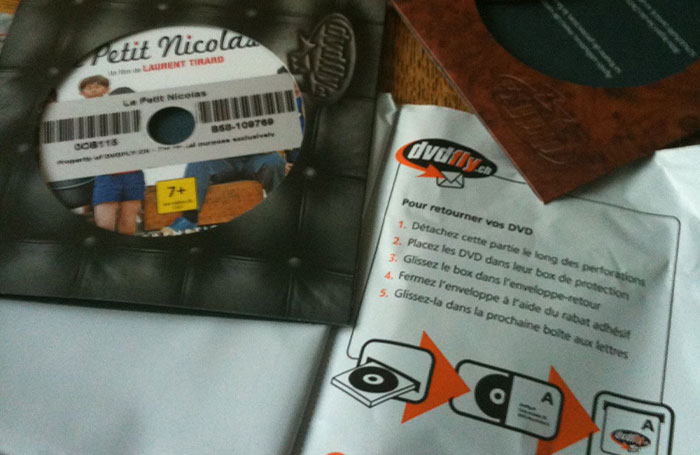 A movie rental company that mails you DVDs. I thought it was the [worst] idea when it first came out when I could drive 5 minutes to Blockbuster and get whatever I wanted then.
A movie rental company that mails you DVDs. I thought it was the [worst] idea when it first came out when I could drive 5 minutes to Blockbuster and get whatever I wanted then.
 In the 1700s, this guy named Timothy Dexter had a few of these.
* [Bed warmers] are useful in cold climates, but he took a shipload of them to the Caribbean for sale. They were sold to the molasses industry as ladles and turned a handsome profit.
In the 1700s, this guy named Timothy Dexter had a few of these.
* [Bed warmers] are useful in cold climates, but he took a shipload of them to the Caribbean for sale. They were sold to the molasses industry as ladles and turned a handsome profit.
* He took a load of mittens to the same place. Some Asians bought them to sell onward to Siberia.
* Newcastle was a major coal-mining area. He took a shipload of coal there for sale, arrived during a major miner's strike, and turned a big profit.
* He did the mittens thing again, this time to the South Seas, and arrived just in time to sell them to some Portuguese traders on their way to China.
Seems like he was very dexterous in the business and marketing industries.
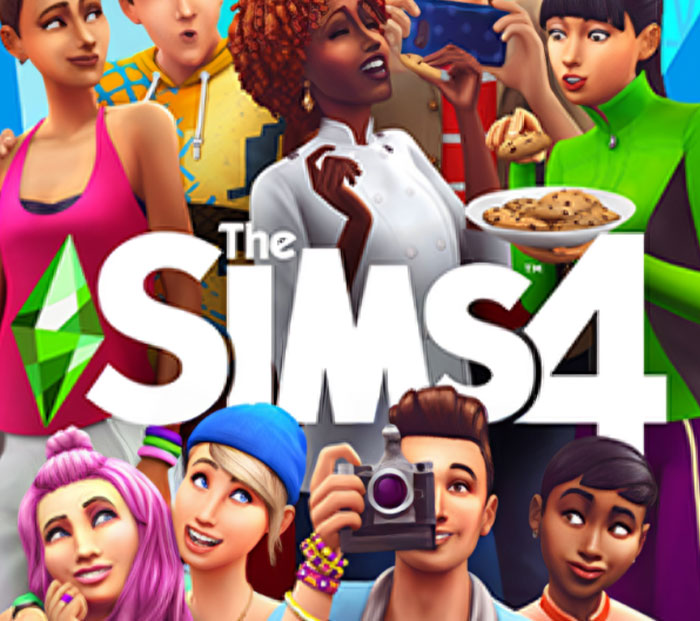 The Sims computer game. It sounds like the stupidest idea ever - who would want to control a Sim character doing all the mundane s**t we do every day. How boring. But I played the s**t out of the Sims, then the subsequent versions.
The Sims computer game. It sounds like the stupidest idea ever - who would want to control a Sim character doing all the mundane s**t we do every day. How boring. But I played the s**t out of the Sims, then the subsequent versions.
 CATS, the Broadway musical. A nonsense fever dream about horny catpeople competing to die and be reborn (yes, that is the plot, insofar as CATS has one), based on a book of silly short poems by T.S. Eliot that are not really related to each other except all being about cats. Just catpeople introducing themselves and rubbing on each other for several hours, then one of them "ascends" aka dies.
To date, CATS has made over a billion dollars worldwide.
CATS, the Broadway musical. A nonsense fever dream about horny catpeople competing to die and be reborn (yes, that is the plot, insofar as CATS has one), based on a book of silly short poems by T.S. Eliot that are not really related to each other except all being about cats. Just catpeople introducing themselves and rubbing on each other for several hours, then one of them "ascends" aka dies.
To date, CATS has made over a billion dollars worldwide.
The guy who bought sections of the berlin wall. People were tearing it down and he wanted to buy some of it. The government was like, lol sure you pay us for something we are tearing down anyways. He has been selling pieces of the wall as souvenirs and is fairly wealthy from it.
That wall coming down was one of the most momentous events in my lifetime. Literally overnight, millions of people, who had been cooped up for decades gained the right to free travel to the West. No matter what people tell you, walls are made to keep people in not keep people out. Think about that.
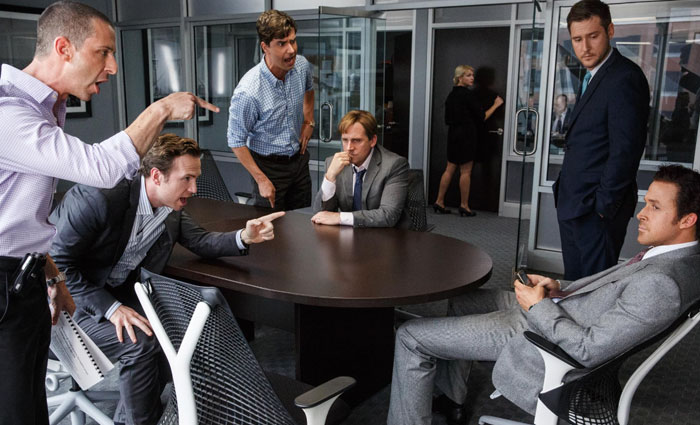 So I'm going make a movie about the 2008 financial crash.
-Um, OK...
I'm going explain all the jargon and why it happened
Um, OK, but won't people be bored?
not if I have Margot Robbie explaining, naked, in a bubble bath
OK you have my attention
It will be great and it will have Christian Bale, Ryan Gosling, Steve Carrell, Selena Gomez and Brad f*****g Pitt
(Some movie executives, probably)
The Big Short is excellent; I have seen it three times now.
So I'm going make a movie about the 2008 financial crash.
-Um, OK...
I'm going explain all the jargon and why it happened
Um, OK, but won't people be bored?
not if I have Margot Robbie explaining, naked, in a bubble bath
OK you have my attention
It will be great and it will have Christian Bale, Ryan Gosling, Steve Carrell, Selena Gomez and Brad f*****g Pitt
(Some movie executives, probably)
The Big Short is excellent; I have seen it three times now.
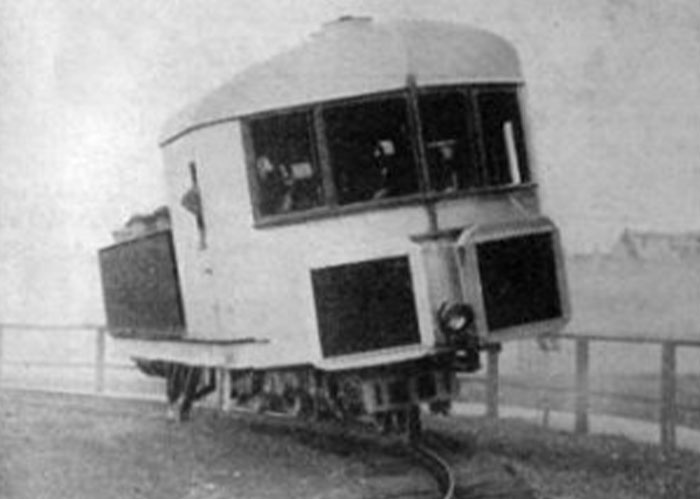 Louis Brennan, inventor of the gyro monorail. His monorail was a single track train which used a gyroscope-based balancing system to remain upright. The designs look insane on paper but it was crazy innovative, safe for passengers, and was apparently even faster than the regular trains (of those days).
Louis Brennan, inventor of the gyro monorail. His monorail was a single track train which used a gyroscope-based balancing system to remain upright. The designs look insane on paper but it was crazy innovative, safe for passengers, and was apparently even faster than the regular trains (of those days).
The idea was that you could get two trains on one set of tracks. The problem is the massive gyroscopes needed to keep them upright were heavy and you needed one for every car. Any advantages were negated by the loss of efficiency and cost of construction.
 During the Battle of Leyte Gulf in WW2, the American Navy was escorting the invasion force to the Philippines when they spotted what appeared to be the main Japanese fleet. The larger ships changed course to pursue, leaving the invasion force guarded by destroyers and escort carriers.
Turns out that was a trick. The real Japanese fleet then turned up to attack. On paper, the Americans were f****d.
Instead of running, the American destroyers charged the Japanese and fought so ferociously that the Japanese, thinking that the American force was larger than appeared, withdrew despite the fact that they were winning.
Source: https://en.m.wikipedia.org/wiki/Battle_off_Samar
During the Battle of Leyte Gulf in WW2, the American Navy was escorting the invasion force to the Philippines when they spotted what appeared to be the main Japanese fleet. The larger ships changed course to pursue, leaving the invasion force guarded by destroyers and escort carriers.
Turns out that was a trick. The real Japanese fleet then turned up to attack. On paper, the Americans were f****d.
Instead of running, the American destroyers charged the Japanese and fought so ferociously that the Japanese, thinking that the American force was larger than appeared, withdrew despite the fact that they were winning.
Source: https://en.m.wikipedia.org/wiki/Battle_off_Samar
The men on the destroyers knew they were likely headed towards their deaths but also that they were the only thing between the IJN and the landing area and charged head on.
I feel iPads and tablets in general. Who knew there was a market in-between cells and laptops. Its like a new spoon that’s bigger than a small spoon, and smaller than the big spoon.
I actually got some spoons that size. They're perfect for eating cereals, yoghurt and the like, because a tea-spoon would be too small and a normal spoon just a bit too much.
 Some guys thought people would be interested in renting out their bedrooms to strangers.
Airbnb was this born.
Some guys thought people would be interested in renting out their bedrooms to strangers.
Airbnb was this born.
Trimming trees with 10 circular saws attached to a metal bar, dangling from a helicopter.
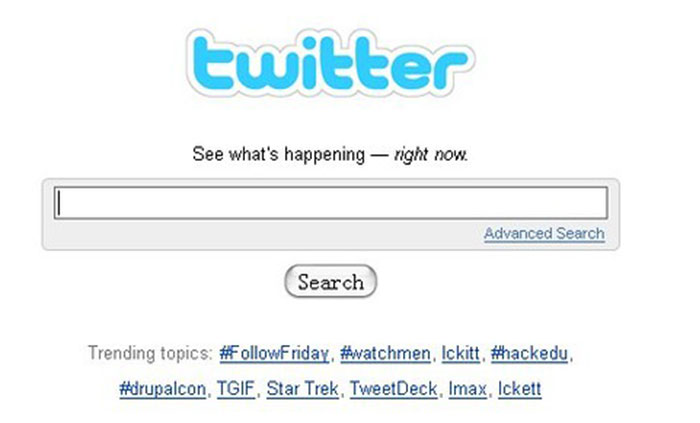 Twitter
Let's restrict users to very short messages for no particular reason. Looks dumb on paper but really took off (and then eventually devolved into an alt-right dumpster fire, but that's another story)
Twitter
Let's restrict users to very short messages for no particular reason. Looks dumb on paper but really took off (and then eventually devolved into an alt-right dumpster fire, but that's another story)
 Arguably, ride share. What?! Strangers drive you and they don't even have a medallion!
Arguably, ride share. What?! Strangers drive you and they don't even have a medallion!
1970s: Don't talk to strangers. 1980s: Don't get into strangers' cars. 1990s: Don't talk to strangers on the Internet. 2000s: Don't tell anybody on the internet where you are or where you live. 2010: Contact a stranger on the internet, telling them where you are now and where you live, and when they show up get in their car.
Trains Can they go uphill? No Can they go downhill? No Can they go round corners? Not really Can they go across the ground? No they need special tracks to run on Can they travel through snow? No Can they travel if the rails get really hot? No Can the driver decide which way to drive? No
Can they reliably carry far more than the best current alternative? Hells yeah.
Okay, how about... You take a popular children's toy and make a movie out of it? Sounds ridiculously dumb and yet you have The Lego Movie, Barbie, the entire Trolls media franchise... oh, and holy s**t, the American Girl dolls have *so. many. movies*. I'm not saying everything is an amazing watch, but if you're talking about successes then you can't deny there have been a lot of them. Plenty of failures too though, for sure.
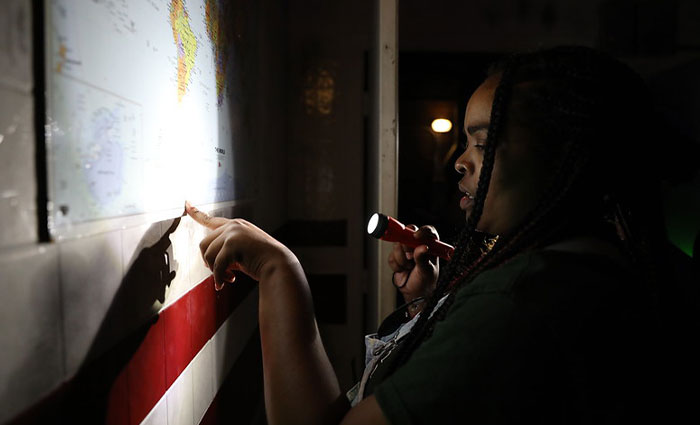 Escape rooms.
It sounds silly writing it down on paper that you have to lock yourself in a room and solve puzzles but irl it’s actually super fun
Escape rooms.
It sounds silly writing it down on paper that you have to lock yourself in a room and solve puzzles but irl it’s actually super fun
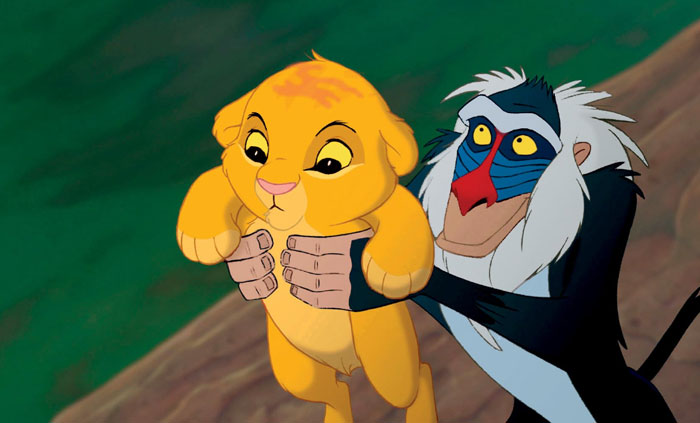 When I was a teenager, I thought *The Lion King* sounded stupid. Disney had just stormed back into massive relevance with several fairy tales in a row that made bank--why were they doing some animal story I'd never heard of? (I hadn't seen it yet to realize it was kind of lion-Hamlet lol.)
*The Lion King*, of course, made money paw over fist.
When I was a teenager, I thought *The Lion King* sounded stupid. Disney had just stormed back into massive relevance with several fairy tales in a row that made bank--why were they doing some animal story I'd never heard of? (I hadn't seen it yet to realize it was kind of lion-Hamlet lol.)
*The Lion King*, of course, made money paw over fist.
Well, the "animal story [you]'d never heard of" was a straight ripoff by a 1950s manga comic, spurring a 1960s animated series that had been broadcast worldwide to universal acclaim, produced by one of Japan's most famous authors. They went as far as copying characters and even scenes all while denying the source material.
I don't agree with this personally cause I love Bob, but many said that casting Robert Downey Jr as Iron Man was a terrible idea at the time
Lotteries. You mean a group of people will come and pay you to give 50% of that money to you and 50% to a random person in that group? Ha!
I always look at it as a social project: we all tip in, so that at least one of us can escape the grind.
A phone that uses a touchscreen instead of physical buttons to type of message.
Phones were getting smaller and smaller. Until the day someone figured out it is possible to play porn on it, since that day phones are getting bigger with better resolution.
 Ok, guys - here's my business plan:
- People will give me perfectly good stuff for free,
- I'll turn around and sell it for money,
- Profit.
aka Value Village, or any thrift store in general.
Ok, guys - here's my business plan:
- People will give me perfectly good stuff for free,
- I'll turn around and sell it for money,
- Profit.
aka Value Village, or any thrift store in general.
 A film, based on a true story, about a guy who got his arm stuck under a rock in a cave for 127 hours. Surprisingly watchable. Danny Boyle is a hell of a director/producer.
A film, based on a true story, about a guy who got his arm stuck under a rock in a cave for 127 hours. Surprisingly watchable. Danny Boyle is a hell of a director/producer.
Inventor: how about - instead of carving words into strong durable rock and metal, we use messy ink to write on thin sheets that can be easily torn, and is highly flammable? Investor: I dunno, it sounds good on paper.
With regards to FedEx - This kind of gets at the fundamental difference between a government service and a business. The Post Office has to deliver mail to everyone in the country for the same prices, because it's a national service, and their primary mandate is to provide the service, not to make huge profits. So yeah, it might not be as fast or efficient as a private company, because shipping companies often make their business fast and efficient by simply not doing business in places where their profit margins are lower. I have family in very rural areas, and if it wasn't for the Post Office I don't know how they'd get mail, since there's no way FedEx is driving out there. It's a private company and they wouldn't make a profit from the trip, so they'd either just say no, outside the service area, or charge an arm and a leg. So yeah, FedEx may be faster and 'better,' but it's because the Post Office is required to do the job even when there's no money in it.
Inventor: how about - instead of carving words into strong durable rock and metal, we use messy ink to write on thin sheets that can be easily torn, and is highly flammable? Investor: I dunno, it sounds good on paper.
With regards to FedEx - This kind of gets at the fundamental difference between a government service and a business. The Post Office has to deliver mail to everyone in the country for the same prices, because it's a national service, and their primary mandate is to provide the service, not to make huge profits. So yeah, it might not be as fast or efficient as a private company, because shipping companies often make their business fast and efficient by simply not doing business in places where their profit margins are lower. I have family in very rural areas, and if it wasn't for the Post Office I don't know how they'd get mail, since there's no way FedEx is driving out there. It's a private company and they wouldn't make a profit from the trip, so they'd either just say no, outside the service area, or charge an arm and a leg. So yeah, FedEx may be faster and 'better,' but it's because the Post Office is required to do the job even when there's no money in it.

 Dark Mode
Dark Mode 

 No fees, cancel anytime
No fees, cancel anytime 








